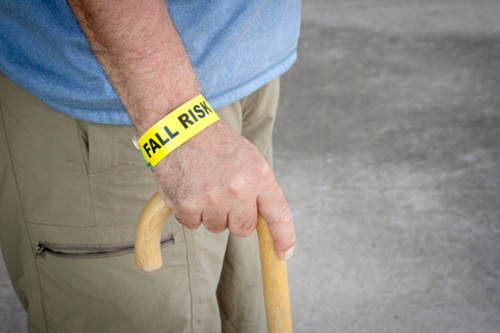 Vitamin D deficiency can increase the risk of falls and fractures, especially among the elderly. Studies indicate that lower fracture rates are linked with higher levels of vitamin D3 (cholescalciferol) in the blood. Previous research has also positively linked vitamin D3 supplementation with a lower risk of falls. It plays a key role in the maintenance of muscle strength and integrity.
Vitamin D deficiency can increase the risk of falls and fractures, especially among the elderly. Studies indicate that lower fracture rates are linked with higher levels of vitamin D3 (cholescalciferol) in the blood. Previous research has also positively linked vitamin D3 supplementation with a lower risk of falls. It plays a key role in the maintenance of muscle strength and integrity.
In a new five-month, single-blind study published in the online edition of the Journal of the American Geriatrics Society, researchers at Wake Forest Baptist Medical Center found that vitamin D3 supplementation delivered through a Meals-on-Wheels (MOW) program in Forsyth County, North Carolina reduced the rate of falls and improved vitamin D levels in the blood.
“Falls in homebound older people often lead to disability and placement in a nursing home. One of our aging center’s goals is to help people maintain their independence and live safely at home for as long as possible,” says Dr. Denise Houston, the study’s lead author.
For the study, 68 patients received either 400 international units (IU) of an active placebo vitamin E with their MOW meal or 100,000 IU of a vitamin D supplement every month. Researchers recorded the participants’ history of falls. At the beginning and end of the study, vitamin D was measured in the blood. The participants also recorded their falls in a monthly diary.
At the start of the study, researchers found that over half of the participants were vitamin D deficient, with less than 20 nanograms per milliliter (ng/ml) in the blood. Fewer than 25% of participants had concentrations at the optimal range of 30 ng/ml or greater.
The study found that monthly vitamin D intake effectively increased insufficient vitamin D levels in the blood to adequate levels in only one of the 34 patients who received the supplement. Researchers also discovered that there were 50% fewer falls in the vitamin D group when compared to the placebo group.
Sources for Today’s Article:
Houston, D.K., et al., “Delivery of a Vitamin D Intervention in Homebound Older Adults Using a Meals-on-Wheels Program: A Pilot Study,” Journal of the American Geriatrics Society August 16, 2015, http://onlinelibrary.wiley.com/doi/10.1111/jgs.13610/abstract, doi: 10.1111/jgs.13610.
“Vitamin D Supplements Could Help Reduce Falls in Homebound Elderly,” Wake Forest Baptist Medical Center web site, August 17, 2015; http://www.wakehealth.edu/News-Releases/2015/Vitamin_D_Supplements_Could_Help_Reduce_Falls_in_Homebound_Elderly.htm.
Fosnight, S.M., et al., “Vitamin D supplementation to prevent falls in the elderly: evidence and practical considerations,” Pharmacotherapy 2008; 28(2): 225–234, http://www.ncbi.nlm.nih.gov/pubmed/18225968.
“Older Adult Falls: Get the Facts,” Centers for Disease Control and Prevention web site; http://www.cdc.gov/homeandrecreationalsafety/falls/adultfalls.html, last updated July 1, 2015.
